A proud dad’s story
by Bob Glowacki
 What a delight it was to go to church one Sunday and see Tyler Fech and his Dad, Kevin as servers. Tyler has Down syndrome, and robed all in white, he walked hand in hand with his Dad and younger sister to the front of Church. Too often we forget how much spirituality plays a special role in the lives of families and can also play a role in changing attitudes in a community. I was struck by the Fech family’s commitment to Tyler’s FULL inclusion into the community — including their faith-life — and asked Tyler’s dad to share his reflections on this aspect of their lives.
What a delight it was to go to church one Sunday and see Tyler Fech and his Dad, Kevin as servers. Tyler has Down syndrome, and robed all in white, he walked hand in hand with his Dad and younger sister to the front of Church. Too often we forget how much spirituality plays a special role in the lives of families and can also play a role in changing attitudes in a community. I was struck by the Fech family’s commitment to Tyler’s FULL inclusion into the community — including their faith-life — and asked Tyler’s dad to share his reflections on this aspect of their lives.
I couldn’t have been prouder
by Kevin Fech
Fifteen years ago, when my son Tyler was born, I was determined he would live his life as he sees fit, not as how others perceive him. Tyler is a thoughtful, caring and adventurous young man. He enjoys participating in everything that everybody else does.
Tyler also was born with Down syndrome and was later diagnosed with autism.
Faith is important to my wife and me, and it was very important that we expose Tyler to the same faith principles that we practiced. Tyler received his Sacrament of Holy Eucharist and became involved in a religious education program called SPRED at Saints Peter and Paul Parish on the east side of Milwaukee. SPRED stands for Special Religious Education for the Developmentally Disabled, and it’s a religious education program specifically designed to meet the spiritual needs of persons with developmental disabilities. Through the SPRED program, Tyler participated in the Liturgy (from lighting candles to helping prepare the Altar for the Liturgy of the Eucharist) and enjoyed these opportunities.
When we transferred to Nativity of the Lord Parish in our home town of Cudahy, we immediately volunteered to be readers and have the kids become Alter Servers. There was no question in my mind that Tyler was capable of this responsibility. Tyler is non-verbal, so I knew he could not help with the readings. Serving, though? I knew he could do that with accommodations (me helping him). When I talked to the Pastor, Father Phil, he had no reservations. So they put us on the schedule.
The first Mass that we worked was Father’s Day. I couldn’t have been prouder. Here I am working Father’s Day mass with my oldest son. Tyler enjoys being an active part of the Sunday Liturgy with his brother or sister, whoever is scheduled with him. While I take for granted what Tyler can do, many are amazed. A number of families came up to us after Mass, some with tears in their eyes and told us how impressed they were with what Tyler was doing to be a part of the Parish.
Tyler is a part of his community and his Faith community is no exception. Had Tyler not been given this opportunity, I am pretty sure we would have started looking for a Parish that would have accepted our family: all five of us.








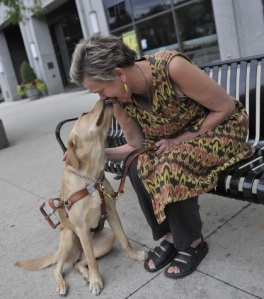 A
A 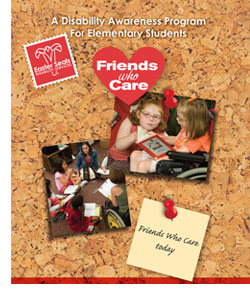
 A lot of our Easter Seals affiliates have long traditions of offering summer camps. From overnight camp experiences to day camps, our programs give families needed respite and support so that they can continue to provide for loved ones.
A lot of our Easter Seals affiliates have long traditions of offering summer camps. From overnight camp experiences to day camps, our programs give families needed respite and support so that they can continue to provide for loved ones.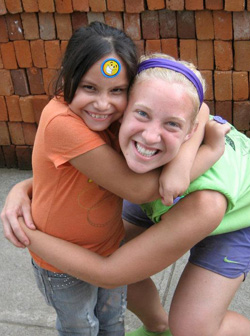 Patricia Wright’s
Patricia Wright’s 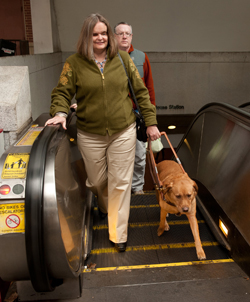 I am pleased to introduce Donna Smith, director of training for
I am pleased to introduce Donna Smith, director of training for 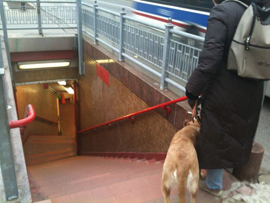 If you’re sitting on the edge of your seat waiting to hear how my life has changed since I
If you’re sitting on the edge of your seat waiting to hear how my life has changed since I